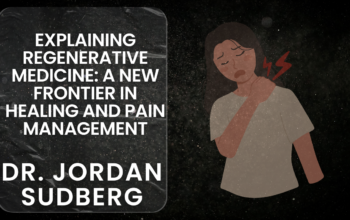Discrimination remains a pervasive issue in today’s society, affecting individuals in various facets of life, including employment, housing, and public accommodations. Las Vegas, a city known for its vibrancy and diversity, is not immune to these issues. A Las Vegas discrimination lawyer from Arias Sanguinetti plays a crucial role in advocating for the rights of marginalized individuals. This article delves into the daily life of such a lawyer, shedding light on their responsibilities, challenges, and the impact of their work.
The Morning Routine: Preparation and Client Meetings
Starting the Day with Purpose
A typical day for a Las Vegas discrimination lawyer begins early in the morning. After a quick breakfast and catching up on the latest news, they head to their office, ready to tackle the day’s challenges. The morning hours are often dedicated to reviewing case files, preparing for court appearances, and meeting with clients. This preparation is essential, as discrimination cases are often complex and require meticulous attention to detail.
Client Consultations and Interviews
One of the first tasks is meeting with clients. These consultations are critical for understanding the specifics of each case. Clients may be facing discrimination based on race, gender, age, disability, sexual orientation, or other protected characteristics. The lawyer listens attentively, taking detailed notes and asking probing questions to uncover all relevant facts. Empathy and active listening are vital skills, as clients often share deeply personal and distressing experiences.
Mid-Morning: Legal Research and Documentation
Conducting Thorough Legal Research
After client meetings, the focus shifts to legal research. Discrimination lawyers must stay abreast of the latest legal precedents and statutes that could impact their cases. This research involves reviewing past court decisions, analyzing legal texts, and consulting with colleagues. A deep understanding of both state and federal laws is crucial, as discrimination cases often involve complex legal arguments and require robust evidence to support claims.
Drafting Legal Documents
Once the research is complete, the lawyer drafts various legal documents, such as complaints, motions, and briefs. These documents must be precise and persuasive, outlining the legal basis for the client’s claim and presenting the evidence in a compelling manner. Attention to detail is paramount, as any errors or omissions could weaken the case.
Afternoon: Court Appearances and Negotiations
Representing Clients in Court
Afternoons are frequently spent in court, representing clients during hearings, trials, and settlement conferences. The courtroom can be an intimidating environment, but a skilled discrimination lawyer is well-prepared and confident. They present arguments, examine witnesses, and counter the opposing counsel’s assertions. The goal is to demonstrate that discrimination occurred and that the client is entitled to compensation or other remedies.
Engaging in Settlement Negotiations
Not all cases go to trial. Often, discrimination lawyers engage in settlement negotiations with the opposing party. These negotiations aim to reach a fair and just resolution without the need for a lengthy court battle. The lawyer must balance assertiveness with diplomacy, advocating vigorously for the client’s interests while being open to compromise. Successful negotiations can save clients time, stress, and the uncertainty of a court verdict.
Late Afternoon: Advocacy and Community Involvement
Providing Pro Bono Services
Many discrimination lawyers dedicate a portion of their time to pro bono work, offering legal services to individuals who cannot afford them. This commitment to social justice ensures that even the most vulnerable members of society have access to legal representation. Pro bono work can be immensely rewarding, as it allows lawyers to make a tangible difference in their communities.
Engaging with the Community
Beyond individual cases, discrimination lawyers often engage in broader advocacy efforts. This involvement might include participating in community events, giving presentations on discrimination laws, and collaborating with local organizations. By raising awareness and educating the public, lawyers help to foster a more inclusive and equitable society.
Evening: Reflection and Continued Learning
Reflecting on the Day’s Work
As the day winds down, the lawyer takes time to reflect on their work. They review the progress made on cases, evaluate their performance in court, and identify areas for improvement. This reflection is vital for professional growth and ensures that they continue to provide high-quality representation to their clients.
Continuing Legal Education
The legal field is constantly evolving, and discrimination lawyers must stay informed about new developments. Evening hours are often spent attending seminars, reading legal journals, and participating in online courses. Continuing education is essential for maintaining expertise and staying ahead of changes in the law.
Challenges and Rewards of Being a Discrimination Lawyer
Navigating Complex Legal Landscapes
One of the biggest challenges for discrimination lawyers is navigating the complex and ever-changing legal landscape. Discrimination cases often involve intricate legal issues, requiring a deep understanding of both state and federal laws. Lawyers must be adept at constructing compelling arguments and presenting evidence effectively.
Managing Emotional Toll
The emotional toll of handling discrimination cases can be significant. Lawyers are exposed to their clients’ painful experiences and must remain empathetic while maintaining professional detachment. Balancing these emotional demands requires resilience and strong support systems.
Achieving Justice and Empowering Clients
Despite the challenges, being a discrimination lawyer is incredibly rewarding. Successfully advocating for marginalized individuals and achieving justice can have a profound impact on clients’ lives. Moreover, lawyers contribute to the broader fight against discrimination, helping to create a more just and equitable society.
Conclusion
A Las Vegas discrimination lawyer’s day is marked by a blend of client advocacy, legal research, courtroom representation, and community involvement. While the work can be challenging and emotionally demanding, it is also deeply fulfilling. These dedicated professionals play a vital role in protecting the rights of marginalized individuals and promoting social justice. By understanding the intricacies of their daily lives, we can better appreciate the invaluable contributions they make to our society.



